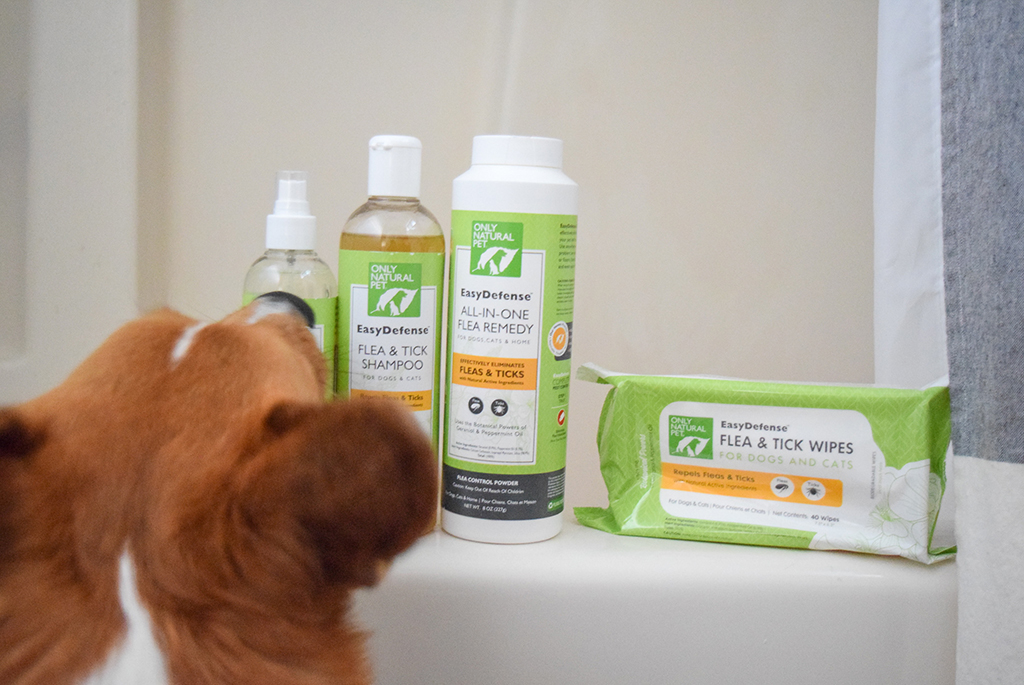Rooney is going to be 8 years old in July, and he is very much so middle-aged (Don’t tell him though).
Recently, I was thinking to myself, is it time to revisit Rooney’s supplements and start preparing for those unavoidable senior years? While there is plenty of information available regarding supplements for senior pets, what about the pets that aren’t quite seniors yet? Should they receive daily vitamins and supplements? If so, what kind?
So today, I would like to dive into this topic a bit and share with you the top 3 supplements recommended for dogs.
Topic Summary
Since I know that most of my readers are very busy pet parents, I wanted to include a brief summary of the conclusions outlined below:
- Just because vitamins and supplements have grown in popularity among pet parents, doesn’t mean that you have to use them. I highly recommend consulting with your veterinarian before adding vitamins and supplements to your dog’s diet.
- Dogs have necessary vitamins and minerals that they need to get from their diet. If you are feeding a homemade diet to your dog, please be sure to account for these necessary elements. Again, consult your veterinarian before adding/making changes to your pet’s diet.
- Supplements have been known to improve; Joint Health, Gut (Digestive) Health, Cognitive Health, Coat & Skin Health, and Immunity.
- Top 3 Recommended Supplements from my research
- EFAs – Essential Fatty Acids
- Glucosamine with Chondroitin Sulfate
- Probiotics
- The purchasing location and brand of a supplement matters. There are several questions outlined below by veterinarians that can help you determine if your supplement is safe and effective.
- My thoughts on vitamins and supplements and my plan for Rooney

Popularity of Vitamins and Supplements
Vitamins and supplements for dogs and cats have been a growing trend for over a decade. According to the Journal of the American Veterinary Medical Association in 2006; one third of US based dogs and cats were receiving a vitamin or supplements as part of their care. However, the increase in popularity is no indicator that you need to give your pet vitamins and supplements.
While vitamins are not supplements, they often come up in the same conversation, and I think in some ways are thought of as synonymous. However, vitamins are different from supplements and there are several vitamins (and minerals), that pet parents should make sure their dogs are getting from their diet.
Necessary Vitamins for Dogs
According to Rover and the National Academy of Sciences, your dog needs the following vitamins, which they should, and can get from their daily food if they are being fed a “complete and balanced” diet.
- Vitamin K for activation of clotting factors, bone proteins, etc.
- Vitamin B1 (Thiamin) for carbohydrate metabolism and activation in neural tissue
- Riboflavin,Vitamin B12, and niacin for enzyme functions
- Vitamin B6 for glucose generation; red blood cell function; nervous system function; etc.
- Folic acid for metabolism and protein synthesis
- Pantothenic Acid for energy and their metabolism
- Chlorine as a phospholipid membrane component
According to Dr. Gary Richter, award-winning vet and member of Rover’s Dog People Panel, all dogs require the vitamins listed above, and if your pet food is labeled as “complete and balanced” it should include all of these vitamins for your dog.
Necessary Minerals for Dogs
In addition to the list of vitamins above, the National Academy of Sciences stresses the importance of your dog receiving the 12 essential minerals in their diets as well! Those minerals include the following:
- Calcium for formation of bones and teeth, blood coagulation, etc.
- Phosphorus for pH balance, metabolism, skeletal structure, etc.
- Magnesium for hormone function, mineral structure of bones and teeth, etc.
- Sodium for pH balance, nerve impulse generation and transmission, etc.
- Potassium for pH balance, enzymatic reactions, etc.
- Chlorine for transfer of liquids across cell membranes and pH balance
- Iron for blood components and energy metabolism
- Copper for blood cell formation, connective tissue formation, etc.
- Zinc for enzyme reactions, cell replication, metabolism, etc.
- Manganese for enzyme and cognitive function, as well as bone development
- Selenium for immunity
- Iodine for thyroid hormone synthesis, growth and metabolism
I will note that several articles stressed the importance of vitamins and minerals for dogs who are being fed homemade diets. If you are currently feeding your dog a homemade diet, what vitamins and supplements are you giving them? I would love to hear your thoughts about brands and vitamin and mineral combinations in the comments below.
How Can Supplements Improve a Dog’s Overall Health?
The use of supplements varies significantly from pet to pet and from supplement to supplement, so the benefits vary greatly as well. Here is a brief list of ways people can improve their pets health with vitamins and supplements:
- Joint Health
- Gut (Digestive) Health
- Cognitive Health
- Coat & Skin Health
- Immunity
The Top 3 Supplements Recommended for Dogs
In this case what constitutes the “Top” supplements are those that repeatedly showed up in articles and other research.
EFAs – Essential Fatty Acids
There are two specific types of essential fatty acids that are brought up in the conversation of both human and canine cognitive health.
Omega-3 and Omega-6 are known as essential fatty acids because our pets’ bodies cannot manufacture them — they must take them in along with their food, or as supplements. – Dr. Marty Becker
Firstly, its important to note that these fatty acids have anti-inflammatory properties which is how they play such a critical role in brain health, but they also can improve joint health as a result. These supplements have the added benefit of improving your pet’s immune system as well as their skin and coat health. Lastly, I will add that Omega-3s have shown support for improving kidney and heart health (VeterinaryMedicine.DVM360).
Glucosamine with Chondroitin Sulfate
In the early 2000s the evidence of the efficacy of these supplements was lacking, but Dr. Marty Becker recommends using these supplement in conjunction with EFAs in order for your pet to feel the full benefits.
The anti-inflammatory effects of these products may help pets with arthritis, while the ingredients (especially those derived from cartilage) provide the body with what it needs to help repair damaged cartilage in joints. – Dr. Marty Becker
I would love to provide you with a strong argument for Glucosamine and Chondroitin Sulfate as a supplement for your dog, but that argument could go on for ages. The efficacy is well documented and supported by so many veterinarians. The argument against using these supplements would be based on brand. Meaning, there are some brands who are selling the fountain of youth for dogs, and not really giving much in return. Dr. Ernie Ward from Dogster recommends pet parents use supplements with the National Animal Supplement Council seal.
Probiotics
Probiotics significantly improve digestive health, which has an impact on a dog’s overall immunity and ability to fight disease (Dogster). How do they work? Probiotics create short-chain fatty acids which inhibit the activities of harmful bacteria in the digestive system (Whole Dog Journal).
Supplementing probiotics (and “prebiotics,” which is food the “good” bacteria eat) can help older pets with digestion, fighting off disease and even the effects of stress. But be sure to use probiotics designed for pets, not humans — ask your veterinarian for a recommendation. – Dr. Marty Becker

Photo by Jf Brou on Unsplash
Does it Matter Where You Buy Supplements?
Yes, yes, and YES!
In an article published by Veterinary Practice News in 2017, Michael Lane, DVM (Senior Resident, Internal Medicine at the University of Tennessee Veterinary Teaching Hospital) stated “a combination of a lack of quality control and predatory marketing practices have led to a saturation of the veterinary market with products that have outlandish claims of medical benefits based on no merit whatsoever”. Despite the overall efficacy of supplements, not all brands and products are created equal.
Unfortunately, lack of regulation and oversight means that determining the efficacy of a product falls on veterinarian’s shoulders. According to Dr. Lane, the following are questions pet parents can ask themselves to determine a supplement’s safety and ability to attain the desired effects (Veterinary Practice News).
- What is the mechanism of action?
- Is there peer-reviewed literature to support its use?
- Have any safety studies been performed?
- Have any efficacy studies been performed?
- What are the potential benefits and detrimental side-effects?
- Could this product interact/ interfere with any of the pet’s current medications?
- Does the product in the bottle match the label?
- Is there a seal on the label provided by a reputable oversight committee?
- Has the product undergone independent analysis by a third party (outside the manufacturer)?
- Has the product been shown to be free of potentially harmful bacteria, heavy metals, toxins (like arsenic) and contaminants?
A Corgi Parent’s Thoughts
So here are my thoughts on the topic of vitamins and supplements. Rooney is fed a complete and balanced diet, and I do not make him homemade meals, so I’m less concerned about adding the vitamins and minerals listed above. That being said, one of my biggest health concerns for Rooney has always been his joints. Corgis are prone to back problems, and can also struggle with hip issues, so I have always been a fan of Glucosamine with Chondroitin Sulfate supplements, although I have been admittedly inconsistent. However, I am on the hunt for a new brand, and will be bringing this up at Rooney’s annual exam.
My next biggest interest is adding EFA’s to Rooney’s diet. As I mentioned, Rooney is turning 8 this year and I want to be proactive in terms of both his joint health, cognitive health, and immunity as he gets closer to his senior years.
Why not add all 3 right away to Rooney’s diet? I’m not really looking to overdue it. I really want to provide him with a long-term and comprehensive health plan and strategy, and I think adding one supplement at a time could be very effective.
Now that we have discussed the topic…
…what do you think? If you are ready to make some changes to your pet’s diet and add supplements or vitamins, what will you add?
Before giving your pet vitamins or supplements, be sure to find answers to the following questions.
- Does my pet need a vitamin or supplement? Or are they getting everything they need from their diet?
- Have I checked with my veterinarian to ensure that my pet’s need for a supplement isn’t going to cover up an ailment or underlying condition that should be treated in conjunction with, or in addition to, the supplement?
- Can this vitamin or supplement interfere with any medications my dog is currently taking?
- Are the vitamins and supplements I am adding from a good source?
- Are these vitamins and supplements formulated specifically for pets?






